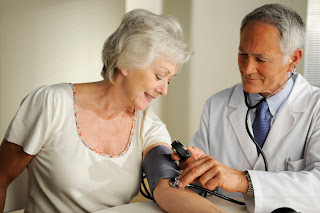The Patient Experience

My book group just finished reading A General Theory of Love. We seem to be a bunch of psychology nerds and fascinated by the human condition. The general theory is about how important human connection is and how intrinsic it is to our core being. The author's compose lengthy prose on the limbic system which allows mammals (unlike reptiles) to have complex interactions with their offspring. Oversimplified, we seek attachment and based on what we experienced as children, we may have healthy or unhealthy love attachments as we age. We seek connection.
Towards the end of the book, the author's discuss the loss of connection in healthcare from a 1990 New York Times article:
I wouldn't demand a lot of my doctor's time, I just wish he would brood on my situation for perhaps five minutes, that he would give me his whole mind just once. I would like to think of him as going through my character, as he goes through my flesh, to get at my illness, for each man is ill in his own way...I'd like my doctor to scan me, to grope for my spirit as well as my prostate. Without such recognition, I am nothing but my illness.
I have personally done multitudes of interviews with patients and this is one of the best quotes I've run across. What patients want, in addition to and perhaps beyond healing, is to be seen. It is important that they feel cared for and connected, not just like another in a long list of issues for the day. The book goes on to quote a 1994 article in the Lancet which advocates that even if doctors don't care, they should "act" as though they do. Many patients who desire compassion are now turning to alternative therapies.So, why bring this up on this blog about user experience? It hearkens back to the user experience, but a piece that we often neglect. We talk about technology and how well it works for people, we talk about product design and whether or not it is intuitive and we test web sites to be sure people can easily navigate their way through. But, we often forget to "design" or review the human component, the most variable, least understood component of any system. Whether you are a physician, customer service rep, retail clerk or barista, remember that at the end of the day it is you who makes or breaks the customer experience. Be patient, think about how you might feel in the other person's shoes. Take a deep breath and grope for their spirit, I can guarantee you will both be happier in the end.


Comments
Great point! There are many things that make us happy. Overall, though, a good experience is a great take away. Recently I heard a report that in the US people ask for gifts of "an experience" a trip, an adventure, rather than a thing. We crave interaction and good experiences.